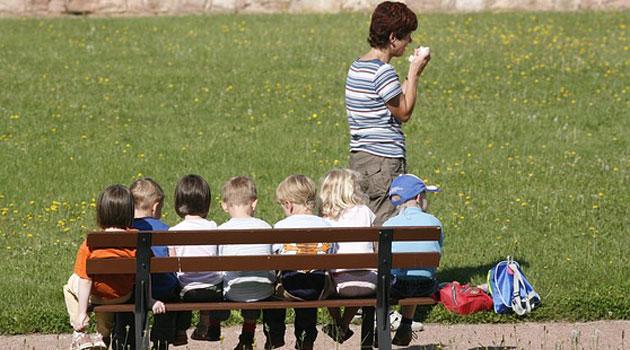Open Society Fund Prague conference on Romani children's access to education: How to explain the delay?

An estimated 300 000 Romani people live in the Czech Republic, the equivalent of approximately 3 % of the overall population. In 2007 the European Court of Human Rights ruled that Romani children here face discrimination in education on the basis of their ethnicity.
The Czech Government has promised change, but 10 years after that judgment, Romani families and their children still grapple with discrimination. Although financial support for pupils as part of inclusive education has improved, current practice demonstrates that the discrimination and segregation of Romani children and of children with disabilities persists in the Czech schools.
These children continue to lack sufficient access to a quality education, which significantly reduces their chances of applying themselves on the labor market as adults. Insufficient support for a fully inclusive approach to education puts the brakes on economic growth overall and on social development in the Czech Republic.
Prior to the close of the 2016/2017 school year, a representative survey was undertaken aiming to map how the adjustments made to support the education of pupils with special educational needs that have applied since September 2016 and are considered part of common education (the amendment to the Act on Education No. 82/2015, Coll.) have been introduced into practice. The survey was performed by the Nielsen Admosphere agency and contributed these new findings:
– 49 % of principals and 38 % of teachers in primary schools state that the new measures are either fully or partially aiding them with arranging better support for children with special educational needs.
– The reform is said to have been of the most assistance in arranging funding for assistants and educational materials.
– 94 % of primary schools have long-term experience with educating pupils with special educational needs.
– 72 % of primary school principals believe financing is not a significant barrier to educating pupils with special educational needs.
– Principals of mainstream schools say the most frequent obstacle to arranging education for pupils with special educational needs is a lack of applicants for the positions of either special needs educators or teaching assistants.
– Primary school teachers most frequently claim that big class numbers are a barrier, with two-thirds calling this a significant obstacle.
– Half of the teachers surveyed consider the new administrative tasks associated with the provision of the new support measures to be disproportionately burdensome.
Previous research undertaken by the Czech Ministry of Education, Youth and Sport and by other organizations has demonstrated the following:
– 30.9 % of the 14 000 children who have been diagnosed with “mild mental disability” in the Czech Republic are Romani.
– Just 30 % of Romani adults aged 20-24 have either a general high school education or a technical secondary school education, compared to 82 % of the majority (non- Romani) population of the Czech Republic.
– A Romani child is 15 times more likely to be diagnosed with “mild mental disability” and recommended for enrolment into a class or school outside the mainstream than a non-Romani child is.
– There are 83 primary schools in the Czech Republic where Romani children comprise more than half of those enrolled.
– There are 136 schools where Romani children represent one-fourth to one-half of those enrolled.
The survey implemented by the Nielsen Admosphere agency was commissioned by Open Society Fund Prague, the Czech-Moravian Union of Education Workers, and the Czech Professional Association for Inclusive Education. Its representative sample of primary schools was chosen on the basis of selection quotas related to the specific region, the size of the municipality, and the size of the school itself.
The resulting sample of respondents was also weighted for age and gender according to the age and gender structure of primary school principals and teachers in the Czech Republic. The final size of the sample was 507 teachers and 126 principals of primary schools from all regions of the Czech Republic.
The preliminary results of the survey were presented by Open Society Fund Prague at a conference entitled “Together to School: Next Steps in the Education of Roma in the Czech Republic”, which took place on 14 and 15 November in Prague and featured addresses by Czech Education Minister Stanislav Štech; Czech Public Defender of Rights Anna Šabatová; Czech Deputy Minister for Human Rights, Equal Opportunities and Legislation David Beňák; Central School Inspector Tomáš Zatloukal; and leading figures from the European Union and the Council of Europe. Those in attendance were principals and teachers; representatives of civil society;, international guests from Middlesex University London, Step4SEAS from Spain, and UNESCO; Romani community organizers; and parents of children living with disabilities as well as parents of Romani children.
The conference was focused on the current state of Romani access to education in the Czech Republic and on assessing measures essential to fully supporting an inclusive approach to education for all. The complete findings of the research into the impact of inclusive education reforms will be published in January 2018.
